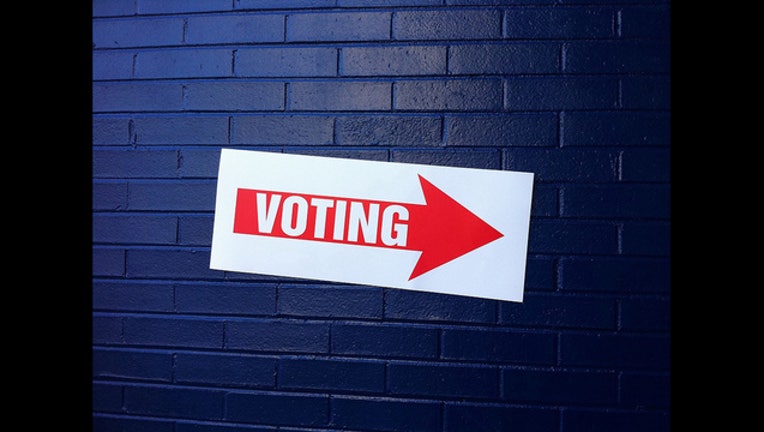State election board questions automatic voter registration

(Photo/Flickr)
CHICAGO (AP) - A plan to make Illinois the next state to allow automatic voter registration is moving through the Legislature despite the state's leading election authority having serious doubts that it has the ability and money to roll it out, especially with one deadline before November's election.
After the Senate easily approved it, the House is poised to take up a proposal in the coming days making the State Board of Elections the clearinghouse for automatically registering voters. By Sept. 1, the board would have to conduct a voter file update with state agencies' data going back a year. The whole plan would be in place by 2018.
Similar to laws in Oregon, California, West Virginia and Vermont, the Illinois plan would allow voters to opt out of automatic registration. Democrats, including those in the House where a committee listed it on a Sunday agenda, say it'll increase civic participation and modernize systems. They point to President Barack Obama's call to make automatic voter registration "the new norm" nationwide during a February visit to Springfield.
Some Republicans claim the measure is a ploy to help Democrats, though GOP opposition is quieter than it has been to recent voter access measures, like 2014's same-day registration. Five GOP senators voted for automatic voter registration and Republican Gov. Bruce Rauner says he favors "simplifying" voter registration. Opponents elsewhere, including GOP-heavy West Virginia, claim automatic registration only adds apathetic voters.
Estimates vary, but supporters claim there's potential for 2 million new Illinois voters to be registered.
Election board officials say their concern is logistics, pointing out that there's no program set up for the initial September update.
"It would take major changes to the system and structure of our system to try and implement these things," said Kyle Thomas, the board's director of voting and registration systems.
Thomas also questions the possible "millions" it could cost as the budget standoff between legislative Democrats and Rauner approaches a year.
Democratic sponsor Sen. Andy Manar of Bunker Hill says upfront investment is expected, but there'll be long-term savings, improved efficiency and accuracy, and other payoffs.
"If we open the doors of the ballot box to more people, the result is going to be an improved state," he said. "When you increase the turnout, you have a government that's reflective of its people."
Well-organized advocacy groups and top Democrats including U.S. Sen. Dick Durbin pitch the idea as a way to remove barriers and contrast Republican-led voter ID laws that they claim curb voter eligibility.
Some Republicans raised concerns about fraud and politics in Democrat-leaning Illinois.
"They wouldn't do this if it didn't have a positive effect on the November election for them," Republican Sen. Kyle McCarter of Lebanon said.
Proponents dismissed his claims.
Here's how the proposal would work: Illinois residents who conduct business with any of five state agencies — like for a driver's license — are asked if they meet voter requirements, including being U.S. citizens. Regardless of their eligibility answer, their information is forwarded to the elections board. Then it's up to election officials to check against other records to verify eligibility, update existing files and start new voter applications. New applications are sent to local election authorities, like county clerks, who inform potential voters they're registered unless they decline.
The participating agencies would be the Office of the Secretary of State and the departments of Human Services, Healthcare and Family Services, Employment Security, and Aging. The proposal says state officials wouldn't send information involving temporary driver's licenses, which are issued to people living in the country illegally.
Backers of the bill worked with election authorities, though state board officials say their final recommendations weren't heeded and questioned why people who say they don't meet voter requirements would be included in data sent to the board. Proponents argue all data would be necessary for accurate analysis and say other states have spent less. Oregon's implementation cost $200,000, according to the Brennan Center for Justice at New York University School of Law.
While the statewide organization representing county clerks took a "neutral" position, some favored the plan.
Cook County Clerk David Orr, a Democrat, said it would improve accuracy. Republican Champaign County Clerk Gordy Hulten said it would be more efficient and smooth out issues with same-day registration, which caused long lines in 2014.
"If the presumption is that a person is eligible to vote," Hulten said, "let's get them on the voter roll ahead of time."
___
The legislation is SB250.
___
Follow Sophia Tareen at http://twitter.com/sophiatareen .

